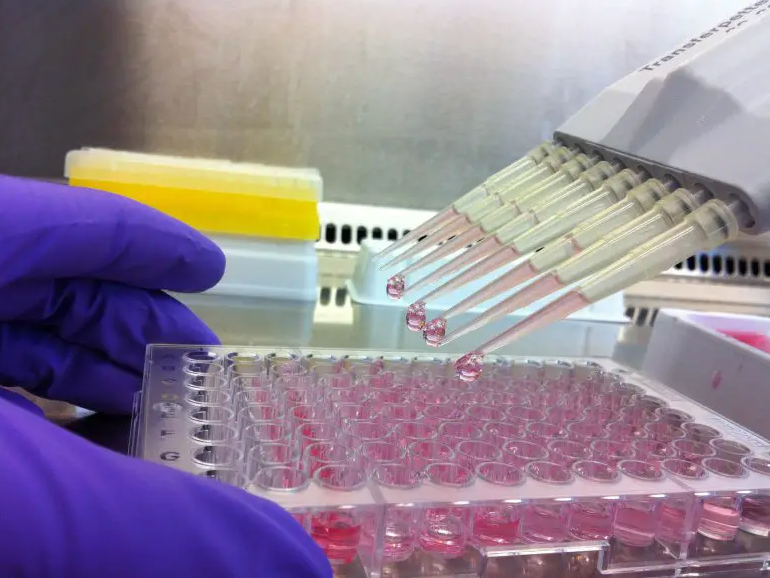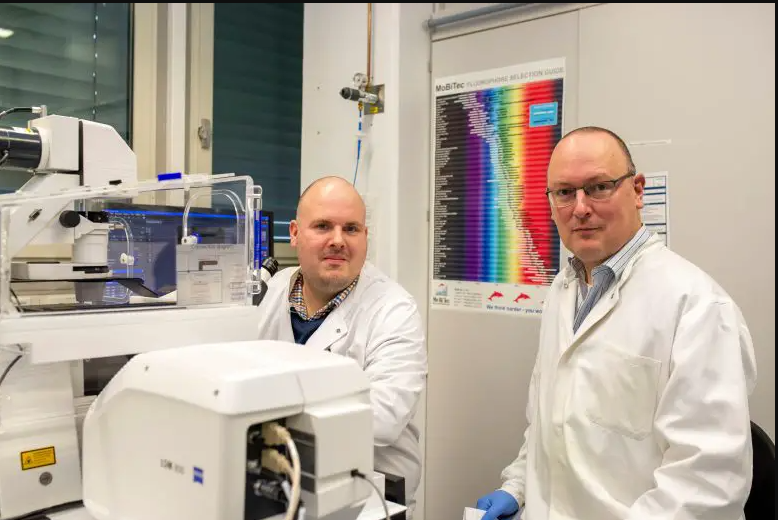In a concerning development, health authorities around the world are closely monitoring the emergence of a new COVID-19 variant named “Eris.” This variant, like its predecessors, has raised questions and concerns among experts and the general population
A benefit of SARS-CoV-2 lineage EG.5.1 is its ability to avoid neutralising antibodies.
Our immune system produces antibodies that specifically target the SARS-CoV-2 spike protein after vaccination or infection, preventing the virus from entering cells and proliferating there. The virus then undergoes changes that make it harder for these antibodies to successfully connect to its spike protein.
The World Health Organisation (WHO) designated the EG.5 lineage of SARS-CoV-2, also known as Eris, as a “Variant of Interest” in the beginning of August 2023 because to its global spread. However, it is not apparent what is causing Eris to spread more widely.
Researchers from the Leibniz Institute for Primate Research at the German Primate Centre in Göttingen have now looked at the traits of the Eris sublineage EG.5.1.
The scientists discovered that EG.5.1 is not more contagious than its forerunners, i.e., it cannot infect host cells more successfully. However, EG.5.1 has an advantage infecting people whose immune systems have created neutralising antibodies as a result of vaccination or infection since it can evade neutralising antibodies better than other SARS-CoV-2 lineages that are currently in circulation.
The situation has greatly improved by this point after laborious years of the pandemic with several waves of illnesses brought on by constantly evolving virus strains and matching hospitalisation rates. Outside of the cold and wet seasons, there are no significant waves of illnesses. This achievement has been primarily made possible by the quick development of vaccinations.
SARS-CoV-2 vaccinations have been given to several persons. Our immune system has been further honed so that it can combat newly developing virus variations through booster vaccinations with modified vaccines, commonly known as booster shots, as well as infections in vaccinated individuals with currently circulating virus variants.
Spike protein changes in virus variants can’shake off’ neutralising antibodies and boost infectivity.
Neutralising antibodies are created by immune system cells following infection or vaccination as part of our immunological defence. SARS-CoV-2 cannot enter our cells because neutralising antibodies bind to the virus’ spike protein. Neutralisation is another name for this mechanism.

Lu Zhang, PhD student at the German Primate Center – Leibniz Institute for Primate Research. Credit: Karin Tilc
SARS-CoV-2 can still evolve, therefore even with neutralising antibodies, complete immunity against an infection is not guaranteed. This causes the formation of virus types that have undergone mutations and are now partially able to resist neutralising antibodies.Based on alterations in the spike protein that make it less ideal for neutralising antibodies to bind, this process—also known as antibody escape—can occur.”Furthermore, mutations can enhance the transmissibility of SARS-CoV-2 variants by, for example, improving the binding of the spike protein to the cellular receptor ACE2,” adds Markus Hoffmann, the study’s principal investigator.
Eris sublineage EG.5.1 spike protein mutations improve the ability to avoid neutralising antibodies.

Work at the Infection Biology Unit of the German Primate Center – Leibniz Institute for Primate Research. Credit: Heike Hofmann-Winkler
The SARS-CoV-2 lineage EG.5 and its offspring EG.5.1 have been on the rise globally since May 2023. The lineage is also known as Eris, named after the Greek goddess of chaos and discord, and is categorised as a “Variant of Interest” by the World Health Organisation (WHO). There is currently no proof that infections with EG.5 and EG.5.1 are causing more severe illnesses, despite the fact that this moniker may sound frightening.
However, it is still unknown what is causing EG.5 and EG.5.1 to propagate more rapidly. The Eris sublineage EG.5.1 has been studied by a group of researchers from the Göttingen German Primate Centre – Leibniz Institute for Primate Research, the Hannover Medical School, and Friedrich-Alexander University Erlangen-Nuremberg. According to Markus Hoffmann, “We have found evidence that an increased capacity to escape from antibodies is the likely cause for the enhanced spread of Eris.”
“We assessed the capacity of the blood of vaccinated persons without a SARS-CoV-2 infection and those with a SARS-CoV-2 infection to penetrate host cells and to be successfully neutralised by antibodies. We discovered that EG.5.1 does not have an antiviral resistance gene, in contrast to other SARS-CoV-2 lineages that are currently in circulation.Further research, however, showed that EG.5.1 is less efficiently neutralised by antibodies found in the blood of either vaccinated or vaccinated and infected persons, according to Lu Zhang, the study’s lead author. For reasons of safety, the trials were carried out using replication-incompetent viruses created in laboratories, sometimes known as pseudoviruses.EG.5 and its sublineages are thought to propagate predominantly through antibody escape rather than improved host cell infection, according to our findings. Markus Hoffmann comments on the study’s findings, “However, the increase in the ability to escape antibodies is rather moderate and by no means sufficient to completely undermine our immunity that has been established through vaccination or prior infection.”
The EG.5 lineage and its sublineages should be resistant to modified vaccinations based on the SARS-CoV-2 XBB.1.5 lineage.

Infection biologist Dr. Markus Hoffmann (left) and Prof. Dr. Stefan Pöhlmann, Head of the Infection Biology Unit at the German Primate Center (DPZ) – Leibniz Institute for Primate Research. Credit: Karin Tilch
Newly modified SARS-CoV-2/COVID-19 vaccines based on the common XBB will be released this autumn.The SARS-CoV-2 1.5 lineage will be used. The question that now emerges is whether or not these vaccinations will also work against EG.5 and its sublineages.
It can be assumed that the newly developed vaccinations will be effective against EG.5 and its sublineages as Eris is a descendent of the closely related XBB.1.9 lineage and the different XBB sublineages demonstrate only slight differences among themselves. Therefore, it is advised to get vaccinated both as a primary and booster, particularly for high-risk groups and their close connections, says Stefan Pöhlmann, Head of the Infection Biology Unit at the German Primate Centre – Leibniz Institute for Primate Research.
ALSO READ:Researchers Uncover An Abnormal Subtype Of Natural Killer Cells




































